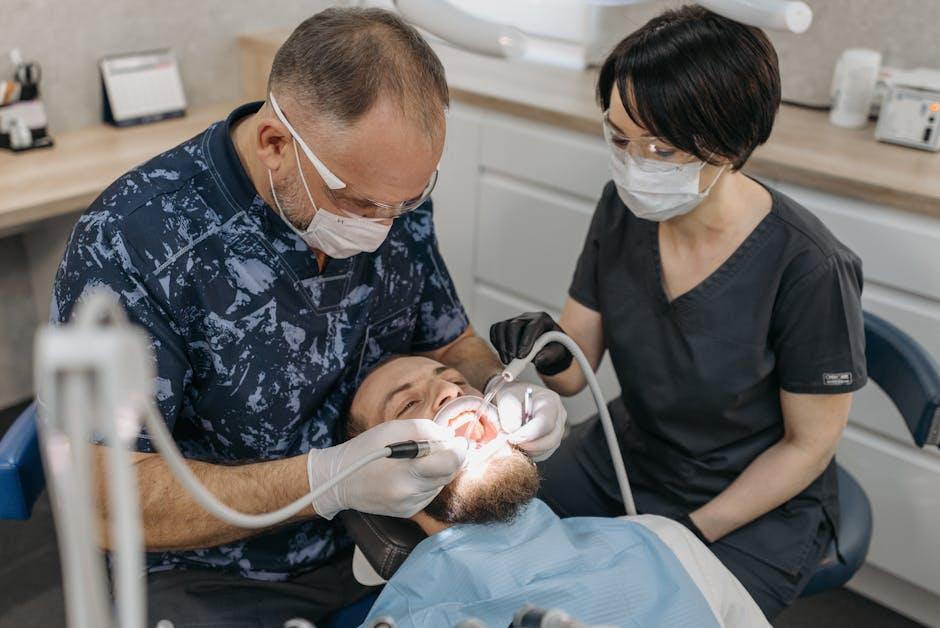
Arizona Oral Preventive Assistants Bill Becomes Law – Insights from the American Dental Association
In a significant stride for dental healthcare in Arizona, the newly passed oral preventive assistants bill has officially become law. This landmark legislation, supported and celebrated by the American Dental Association (ADA), promises to enhance access to preventive dental services, improve patient care, and expand the capabilities of dental teams statewide.
What Is the Arizona Oral Preventive Assistants Bill?
The Arizona oral preventive assistants bill authorizes dental practices to employ and utilize oral preventive assistants (OPAs) to deliver expanded preventive dental care services under the supervision of licensed dentists. Prior to this law, many preventive tasks were restricted to licensed dental hygienists or dentists themselves, limiting efficiency and accessibility, especially in underserved communities.
With the new legal framework, trained and certified oral preventive assistants can now perform key preventive procedures—resulting in broader access to essential dental health interventions.
Key Provisions of the Bill
- Recognition and certification pathway for Oral Preventive Assistants (OPAs).
- Authorization for OPAs to perform specific preventive procedures such as fluoride applications, oral health education, and dental sealants.
- Requirement for OPAs to operate under the direct supervision of licensed dentists or dental hygienists.
- Streamlined delegation of preventive duties to increase practice efficiency.
- Promotion of equitable oral care access in rural and underserved urban areas.
Why This Legislation Matters: ADA’s Perspective
The American Dental Association has long advocated for policies that improve preventive care delivery and better utilize dental team members’ skills. This law aligns perfectly with ADA’s goals by:
- Empowering dental teams with clearly defined roles to enhance patient care.
- Reducing barriers to preventive dental services, especially for children and vulnerable populations.
- Supporting workforce diversification and job growth in the dental health sector.
According to ADA officials, the new legislation will allow dentists to delegate oral health preventive services confidently, enabling them to focus on more complex dental treatments while maintaining high standards of patient safety and care quality.
Benefits of the Arizona Oral Preventive Assistants Law
Dental professionals and patients alike stand to gain from this progressive law. Here’s a detailed look at the core benefits:
| Benefit | Description | Impact |
|---|---|---|
| Expanded Workforce Roles | OPAs performing preventive procedures frees dentists’ time. | Improved clinical workflow, more patients served. |
| Increased Access to Care | More providers offering education, fluoride, and sealants. | Reduced oral health disparities, especially in underserved areas. |
| Cost-Effective Care Delivery | Delegating routine preventive care optimizes resource use. | Lower healthcare costs for patients and providers. |
| Enhanced Patient Education | OPAs dedicate time to instructing proper oral hygiene. | Better patient outcomes, increased preventive behaviors. |
Practical Tips for Dental Practices Implementing the OPA Role
The transition to incorporating Oral Preventive Assistants into dental teams requires thoughtful planning. Here are some expert recommendations for a seamless integration:
- Certification and Training: Ensure OPAs complete accredited training programs that meet Arizona state requirements.
- Clear Protocols: Define the delegation scope and supervision procedures for OPAs to maintain compliance and quality control.
- Patient Communication: Inform patients about new team roles to build trust and improve acceptance of OPA-delivered preventive care.
- Collaborative Culture: Foster an environment of collaboration between dentists, hygienists, and OPAs to maximize team efficiency.
Case Study: Improved Care Delivery in Rural Arizona Community
In a recent pilot program following the implementation of the oral preventive assistants law, a rural community dental clinic reported remarkable improvements:
- 30% increase in preventive service appointments within six months.
- Decreased patient wait times by nearly 40%, thanks to shared clinical responsibilities.
- Enhanced patient oral health literacy, attributed to dedicated counseling by OPAs.
The pilot underscores how legislation-supported workforce expansion can tangibly elevate dental care accessibility and quality.
How This Law Impacts Patients in Arizona
Patients will experience more timely and affordable preventive dental services, which are critical to avoiding costly restorative treatments in the future. Furthermore, children, elderly individuals, and those in medically underserved areas will benefit substantially from enhanced oral health education and regular preventive visits.
What Patients Should Expect
- More frequent availability of fluoride applications and sealants.
- Improved oral hygiene instruction and follow-up support.
- Shorter appointment times for preventive visits.
- Potentially increased reach of community dental programs featuring OPAs.
Conclusion
The enactment of the Arizona oral preventive assistants bill marks a transformative moment in the state’s dental landscape. Supported by the American Dental Association, this law promises to enhance preventive care delivery, optimize dental team efficiency, and improve oral health equity across Arizona.
Dental professionals can leverage the OPA role to better serve patients while growing their practices. Patients, meanwhile, stand to enjoy increased access, education, and preventive services that protect their smiles for a lifetime. As Arizona leads by example, other states may consider similar legislative reforms to strengthen their dental workforce and public health outcomes.
For the latest updates and resources on dental legislation and oral health workforce innovations, visit the American Dental Association website.


